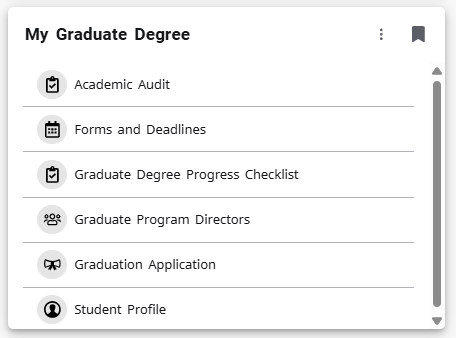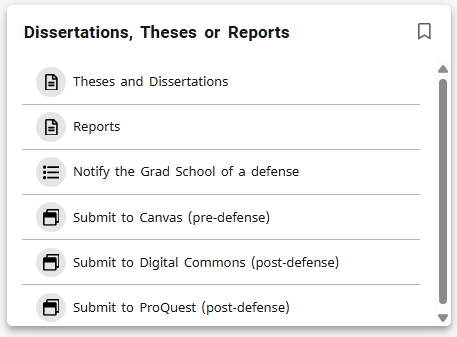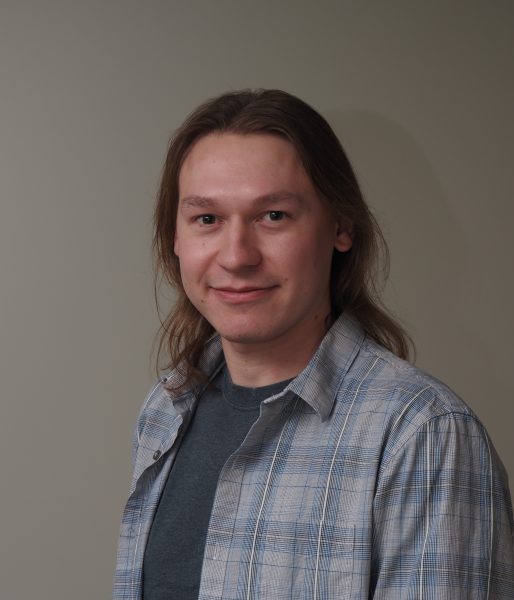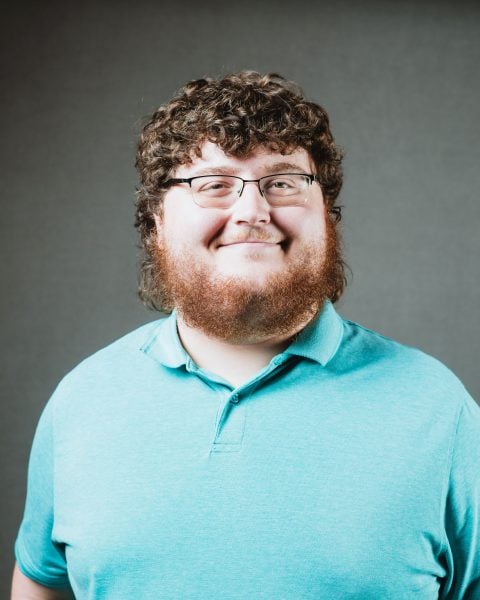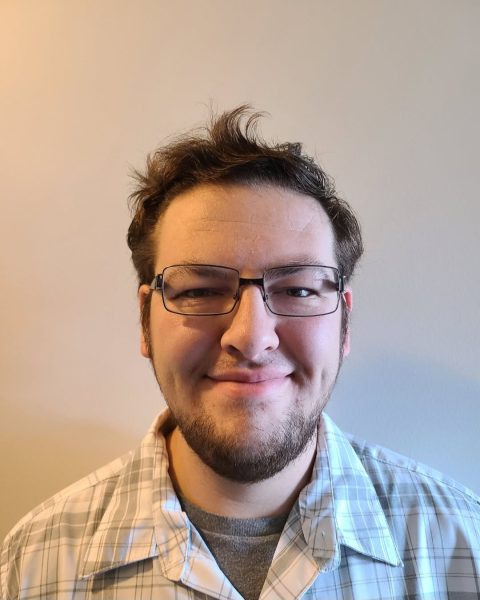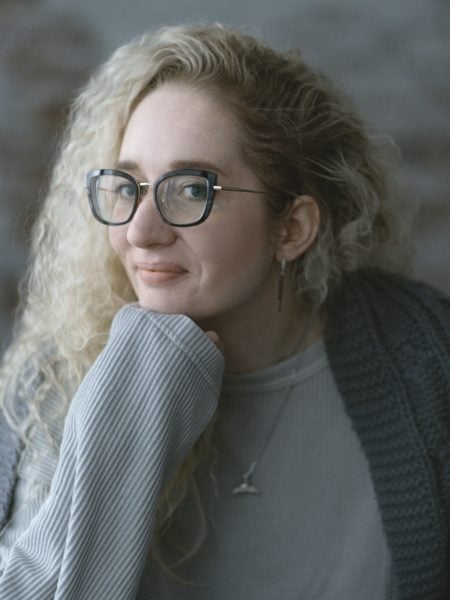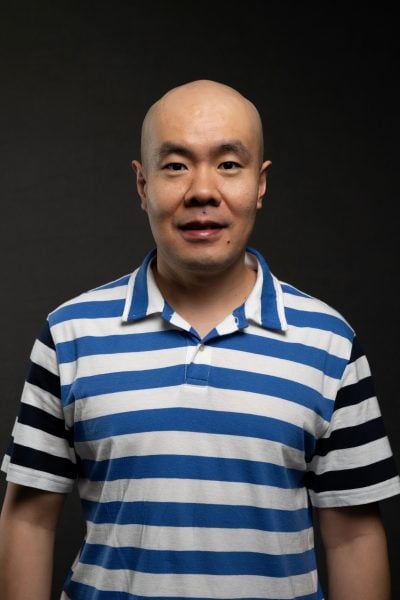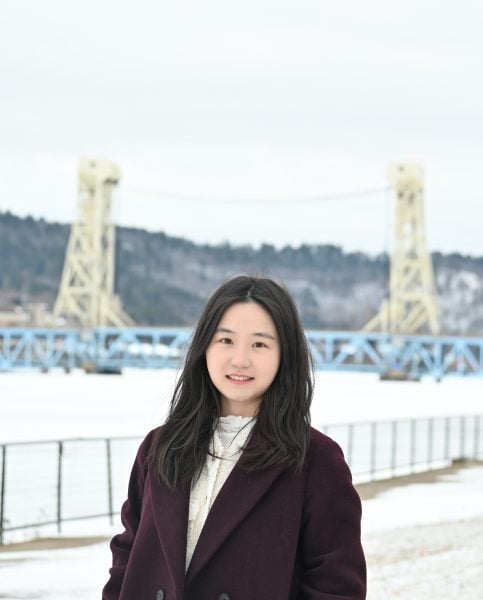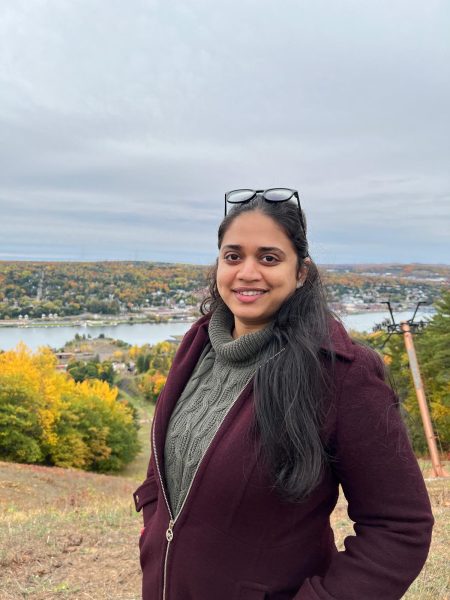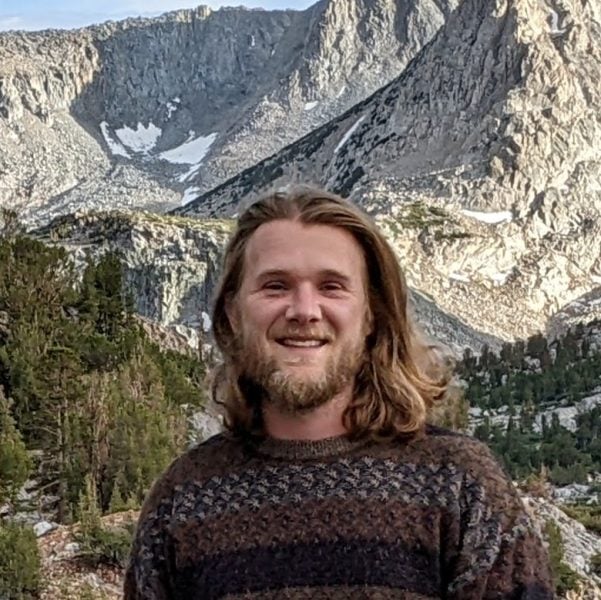All of us in the Graduate School are excited to see you and help you succeed. Make sure to check your email frequently for any updates from the Graduate School. New this year, check the Graduate School Blog for updates, news, and funding opportunities!
Michigan Tech Experience
Take a moment to explore and bookmark the Experience page and make sure to save the “My Graduate Degree” card to your homepage (shown at right) for easy access and the “Dissertations, Theses or Report” card if you’re completing a research-based degree.
Things you will find on Experience:
- Registration and Class Details
- Forms and Deadlines
- Academic Audit
- Hold Information
- Billing Information
- Payroll and Direct Deposit Information
Make sure to bookmark your Degree Progress Checklist (or use the My Graduate Degree card in Experience to find it!) as it offers a list of resources to help you succeed in your graduate degree.
Additional Resources
Current Month Important Deadlines:
| Deadline Date | Description |
|---|---|
| March 10, 2026 | – Last day to register for the Graduate Research Colloquium |
| March 29, 2026 | – Fall Registration Ends |
Upcoming Events
Attend the Ecosystem Science Center Student Research Forum on Thursday, March 12 from 1–3 p.m. in the Rozsa Center Atrium to explore student-led research in ecology and environmental science. This poster session offers graduate and undergraduate students the opportunity to showcase their work and connect with peers across disciplines.
The Graduate Student Government (GSG) is once again hosting this year’s Graduate Research Colloquium (GRC), taking place on Wednesday, March 18. The GRC offers a unique opportunity for graduate students to showcase their research across the campus-wide community while developing their presentation skills for upcoming conferences. Register by March 10. Oral presentations will take place from 9 a.m. – 2 p.m. in the MUB Alumni Lounge, with poster presentations following from 5 – 8 p.m. in the Rozsa Lobby, and faculty members are encouraged to volunteer as judges by completing the GRC 2026 Judges Registration Form.
Next Month Important Deadlines:
- April 13th – Last day to submit committee approved post-defense dissertation, thesis, or report to the Graduate School for spring completion of degree.
- April 13th – Submit all other degree completion paperwork (including applicable certificate degree schedules) to Graduate School—check your Degree Progress Checklist for items needed.
- April 13th – Submit petition to enter candidacy to be eligible for candidacy for next semester.
Local Events
For ideas on how to spend your free time, be sure to check out the Local Area Events Calendar, there’s something for everyone. Check out the Rozsa website for on-campus events. To explore additional seminars, workshops, and Graduate School sponsored events, visit the MTU Events Calendar. This calendar highlights upcoming opportunities across campus, making it easy to stay informed and engaged throughout the semester!
Beyond the Classroom
The Graduate Student Government (GSG) is your key to connecting with the grad student community. They organize tons of activities, from professional development workshops and the Graduate Research Colloquium to social events and mixers. Getting involved with the GSG is a fantastic way to meet people from different departments, share your ideas, and help shape a fun and supportive campus environment. To find out about upcoming events or to learn how you can participate, check out their website.
Have any questions? Please reach out to the Graduate School anytime via email: gradschool@mtu.edu, phone: (906) 487-2327, or visit us in the Admin Building on the 4th floor.

